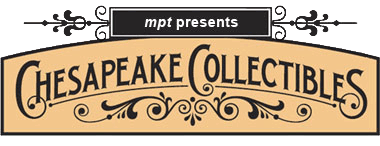Sometimes a prospective client (usually an attorney) will ask us to explain the difference between the professional services of an appraiser and those of an auctioneer. The conversation usually includes references to the “high cost” of a qualified appraisal versus an auctioneer “doing the same thing for free” and selling the property to boot. We almost always conclude the talk with the prospect asking, “So tell me why I need an appraiser?”
While the short answer to this question is “Because a qualified personal property appraiser is a trained and experienced professional who provides unbiased opinions of value,” a more thoughtful response is actually in order.
As appraisers, we are expected to perform valuation services competently and in a manner that is independent, impartial and objective.[1] Our professional code of ethics requires us to provide opinions of value that are both balanced and accurate; therefore, we are prevented from acting as client advocates. That means we cannot take sides or report predetermined value conclusions, as if they were facts, merely to please a client. We must report our findings truthfully. Most importantly, we cannot accept an assignment, or have a compensation agreement for an assignment, that is contingent on the amount of a value opinion or assignment outcome. In other words, an appraiser cannot have a vested interest in the property he or she is appraising.
This is what separates the appraisal profession from the auction industry. While it is common practice for auctioneers to base their compensation on a percentage of a sale, an appraiser does not and cannot work that way. An appraiser cannot appraise “high” for insurance purposes, appraise “low” for estate tax purposes, and charge the client a percentage of the valuation. In short, an appraiser does not work on commission. And while it is perfectly acceptable for an auctioneer to arbitrarily inflate or deflate a presale estimate to stimulate interest in an upcoming sale, it is unethical for an appraiser to knowingly skew assignment results for a client’s benefit.
Let’s be clear here. We have nothing against auctioneers. Some of our best friends are auctioneers. But an appraiser is a different kind of professional. His obligations to be fair, truthful, honest and accurate in his work extend beyond his immediate client to the intended users of his appraisal who have as much right to rely on the appraiser’s value conclusions as the person paying the invoice. And that is why you should hire a qualified appraiser.
[1] Uniform Standards of Professional Appraisal Practice (2018-2019), p.3.







